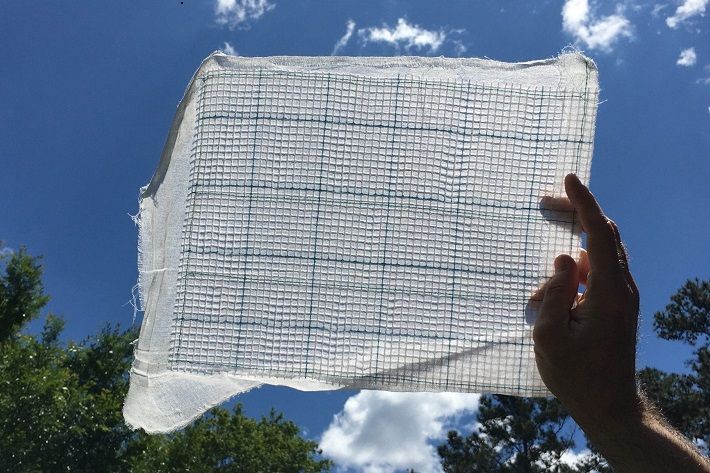
Source: www.fibre2fashion.com
Researchers from US-based North Carolina State University (NCSU) have found they could filter carbon dioxide (CO2) from air and gas mixtures at promising rates using a proposed new textile-based filter that combines cotton fabric and an enzyme called carbonic anhydrase – one of nature’s tools for speeding chemical reactions.
In addition to testing the filters’ carbon capture rates, they also tested how well the filter would work after five cycles of washing, drying and storing. They found it could maintain a high level of performance.
“The enzyme can be maintained at a lower temperature for a very long time and it’s going to be durable,” Shen said. “The fabric provides physical support and structure for it, while providing a large surface area for it to react with the carbon dioxide.”
“There are a lot of different ways to capture carbon dioxide,” Shen said. “The current standard in the commercial setting uses a reaction that is so fast, so robust, and that binds the carbon dioxide so well, that you can’t easily get the carbon dioxide out. You have to use very high temperatures, which means a lot of energy consumption. That makes your process more expensive.”
